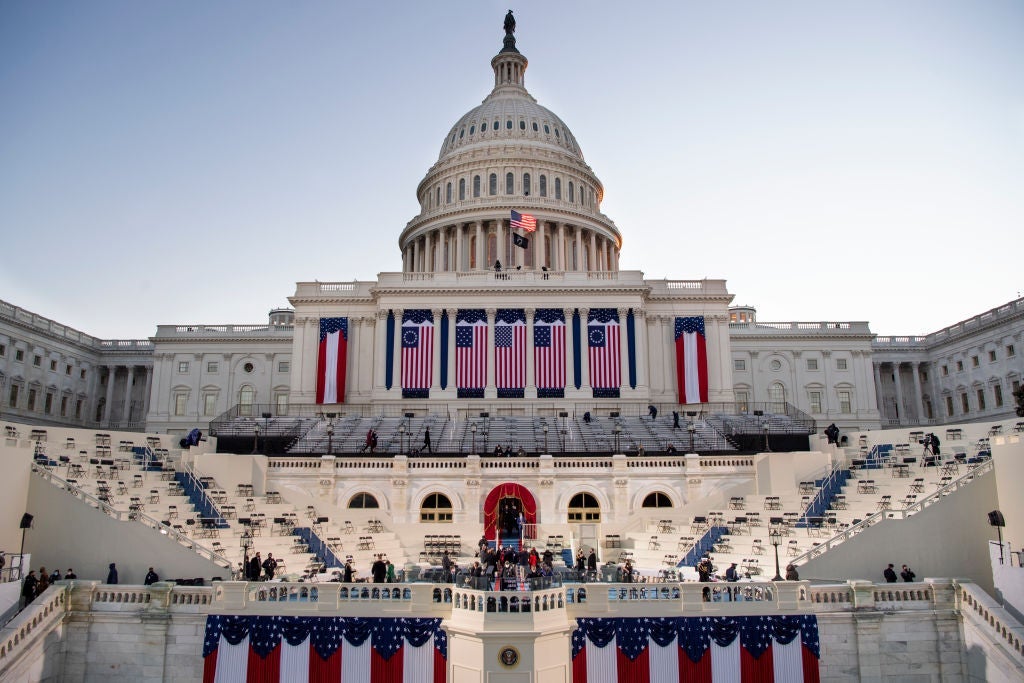Mask mandates and travel bans: What we can expect to see from the Biden Administration regarding travel
President Joe Biden becomes the 46th president of the United States today. We already know he's a big Amtrak fan, but what else could be coming down the pike for the travel industry? New travel restrictions? A national mask mandate? Quarantines?
Read on for some answers.
[table-of-contents /]
Will there be new travel restrictions?
This week, the Trump administration announced that it planned to lift its ban on travel from the EU, United Kingdom and Brazil. However, the Biden administration quickly made clear that move would be reversed once the incoming president was inaugurated.
"With the pandemic worsening, and more contagious variants emerging around the world, this is not the time to be lifting restrictions on international travel," incoming Biden Press Secretary Jen Psaki said in a tweet. "On the advice of our medical team, the [administration] does not intend to lift these restrictions on Jan. 26. In fact, we plan to strengthen public health measures around international travel in order to further mitigate the spread of COVID-19."
At this point, it appears as though the ban on travel from Europe, Brazil, Iran and China will remain in place for the time being under the Biden administration.
Since March 2020, the Trump administration had banned entry to the United States for non-nationals who have been in the U.K., Ireland, 26 Schengen Area countries, China, Iran and Brazil in the last 14 days. There were reports in November 2020 that the White House was considering lifting that ban on travel from Europe, however, U.K. Transport Secretary Grant Shapps said last week that President Trump had blocked those plans.
As of Jan. 26, the U.S. will require all travelers — including U.S. citizens — coming from abroad to have a negative COVID-19 test. The test must be taken no more than three days prior to scheduled departure. That policy is expected to remain in place under the Biden administration.
Muslim-nation travel ban
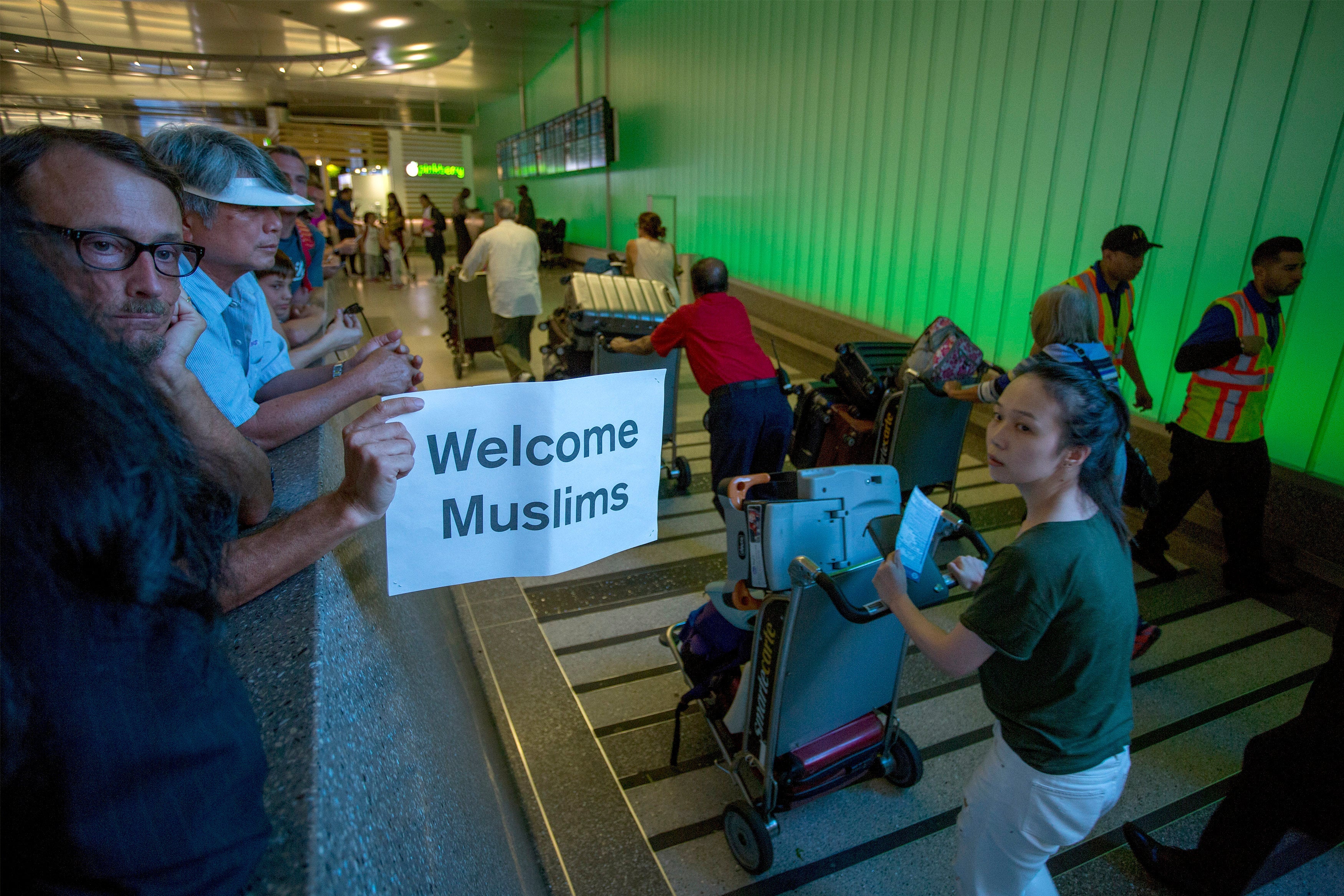
Among the first actions he will take, President-elect Biden is expected to reverse one of President Trump's most controversial policies - the so-called Muslim travel ban that forbade visitors from several Muslim-majority nations. Biden will be directing the State Department to restart the visa process for those countries immediately and to fix those cases with applicants who were denied visas or had applications frozen.

What about quarantine requirements?
To this point in the pandemic, the United States has not mandated any period of quarantine for arriving travelers. Instead, the federal government has left the travel requirements up to individual states.
Some states, such as New York, have implemented their own quarantine requirements for incoming travelers. In November, New York amended its mandatory 14-day quarantine requirement to allow travelers to test out of the full period. For those looking to test out, they must have a COVID-19 test taken within three days of departure and then quarantine for three days. On their fourth day, they can get another COVID-19 test. If both tests are negative, the traveler can forgo the rest of their quarantine.
Related: My New York State quarantine, and the new rules for travelers
But will the Biden administration mandate quarantine on a national level? We don't know that information just yet. If it does choose to implement a mandatory quarantine for arriving travelers, the administration could choose one of two routes: a quarantine in a government-run facility or a self-mandated quarantine for travelers.
If the Biden administration were to implement a national quarantine, it's unlikely we would see a government-run program wherein travelers would be required to stay at federally run facilities, as has been the strategy in countries such as New Zealand and Singapore. Instead, the administration would likely impose a self-isolation period for travelers. However, whether or not that happens has yet to be seen.
Will there be a national mask mandate?
The Trump administration declined to mandate a nationwide mask mandate on all flights and at the airport. Instead, transport providers have had to institute their own rules for mask-wearing and enforcement. Most U.S. airlines have implemented their own policies for this.
Tim Jue is a San Francisco-based reporter covering airlines and travel. He told me back in November that, "Under a Biden administration, I expect the federal government to finally jump in and mandate a lot of the safety protocols we already see when traveling like mandatory masks on planes, trains, and buses. So far, it's been a hodge-podge of rules devised by individual airlines, airports, train operators, and bus companies. The enforcement is inconsistent, and I expect a Biden Department of Transportation to step in with a sweeping set of guidelines for all U.S. operators."
There are reports that on his first day in office, Biden will make mask-wearing mandatory on federal land as well as on airline, trains and transit systems traveling between states. According to a memo from Chief of Staff Ron Klain on Jan. 16 to incoming senior staff, Biden plans to launch a "100 Day Masking Challenge."
The initiative will include the federal property mask mandate, as well as working with state and local offices to "implement mask mandates in their towns, cities and states." The WSJ reports, "The 100-day mask mandate applies on federal property and on airlines, trains and transit systems traveling between states, though Mr. Biden will direct the government to work with state and local authorities on similar steps."
The Biden team campaigned on using a science-based approach to its COVID-19-related restrictions. "A stronger, more effective reopening recognizes that we won't be able to solve the economic crisis in our country without a rigorous public health response," the Biden campaign detailed. "It requires clear, science-based, and nationwide public health guidance — including a clear, consistent message from the very top of our government on the importance of mask-wearing — because we are one country with one population to protect."
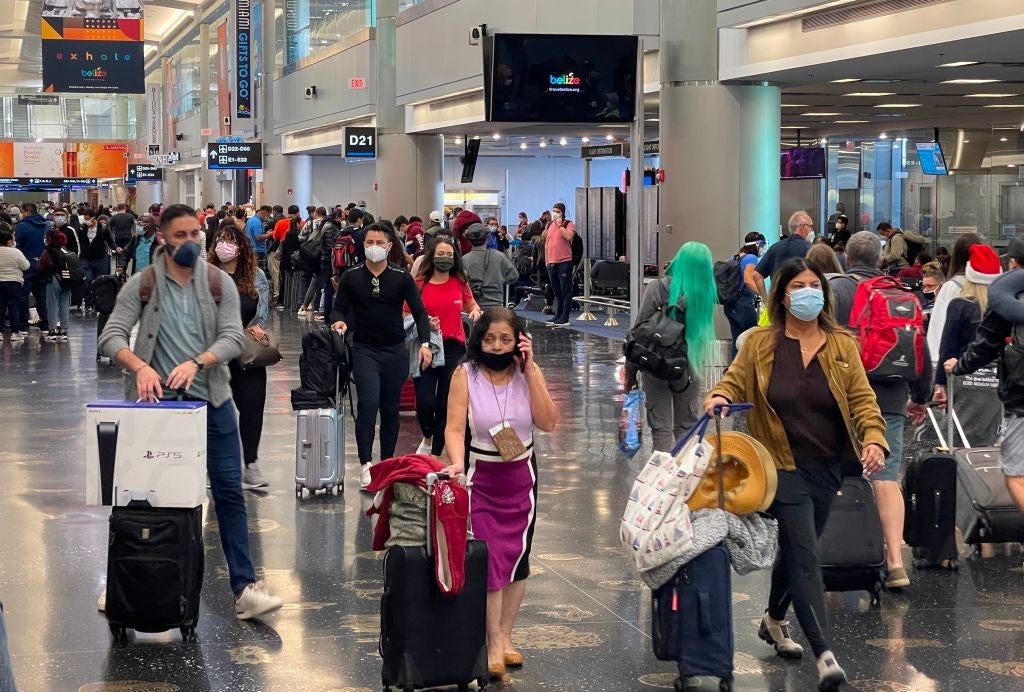
What will support for the travel industry look like?
The incoming administration has made clear that it intends to support the travel industry.
CBS News Transportation Correspondent Kris van Cleave -- who was just promoted to Congressional Correspondent -- told TPG back in November that, ".. the travel sector seems likely to have a supporter in the White House, it is too vital to the overall economy to be left to perpetually wither."
When the Biden administration unveiled its stimulus package last week, some industry trade groups applauded the move, as it called for investing $20 billion in a national vaccination program, among other measures.
"Accelerating the distribution of vaccines is the key to getting travel back to normal, and we applaud President-elect Biden's emphasis on a robust federal leadership role to get as many people vaccinated as quickly as possible," said U.S. Travel President and CEO Roger Dow. "Further, we are encouraged by the measures to provide additional grants and loans to small businesses in the hardest-hit industries, which include travel. The Paycheck Protection Program is set to expire in March, but the economic hardships of the pandemic will persist, so it is important that struggling businesses continue to receive aid to maintain operations and keep workers on payrolls."
The travel industry has largely supported Biden's plan to call for a mask mandate on planes and transit systems that travel beyond states. The industry believes the mask mandate will help to encourage would-be travelers that it's safe to do so.
"We welcome and wholeheartedly support the provisions of President-elect Biden's COVID-19 relief proposal that will help spur the travel industry's recovery and provide support to ASTA members, employees and independent contractors," said American Society of Travel Advisors (ASTA) EVP of Advocacy Eben Peck. "These include an ambitious national vaccination program, an extension of the CARES Act's unemployment programs through September and targeted grants to small businesses hit hardest by COVID."
Another airline bailout?
In the 2020 presidential campaign, Biden expressed support for a second bailout for the travel industry. However, whether it can be pushed through Congress is yet to be seen. The administration and congressional leaders have not given any clues as to when and how much the government would consider a bailout for the airline industry.
The Biden administration will fast-track another major relief package that could include another bailout for the airline industry. We should have details on what's in it soon.
That said, the industry has said that it needs help. With the long winter period still in play with reduced demand, airlines have largely hunkered down. Some have shown glimmers of hope. In the airline's fourth-quarter earnings call last week, Delta Air Lines CEO Ed Bastian said that it expects to see corporate travelers return to the skies in the second half of 2021.
Related: Delta bullish on the return of business travel, despite 'alarm bells' of skeptics
Kris van Cleave told TPG during the election that things could be better for the travel industry if Democrats took control of the House and White House and kept control of the House, ".. industry analysts I've spoken with see very significant stimulus and infrastructure spending as likely. As aid to the airlines, in particular, has bipartisan support it seems likely in a big stimulus they would not be forgotten."
Expansion of train investment?
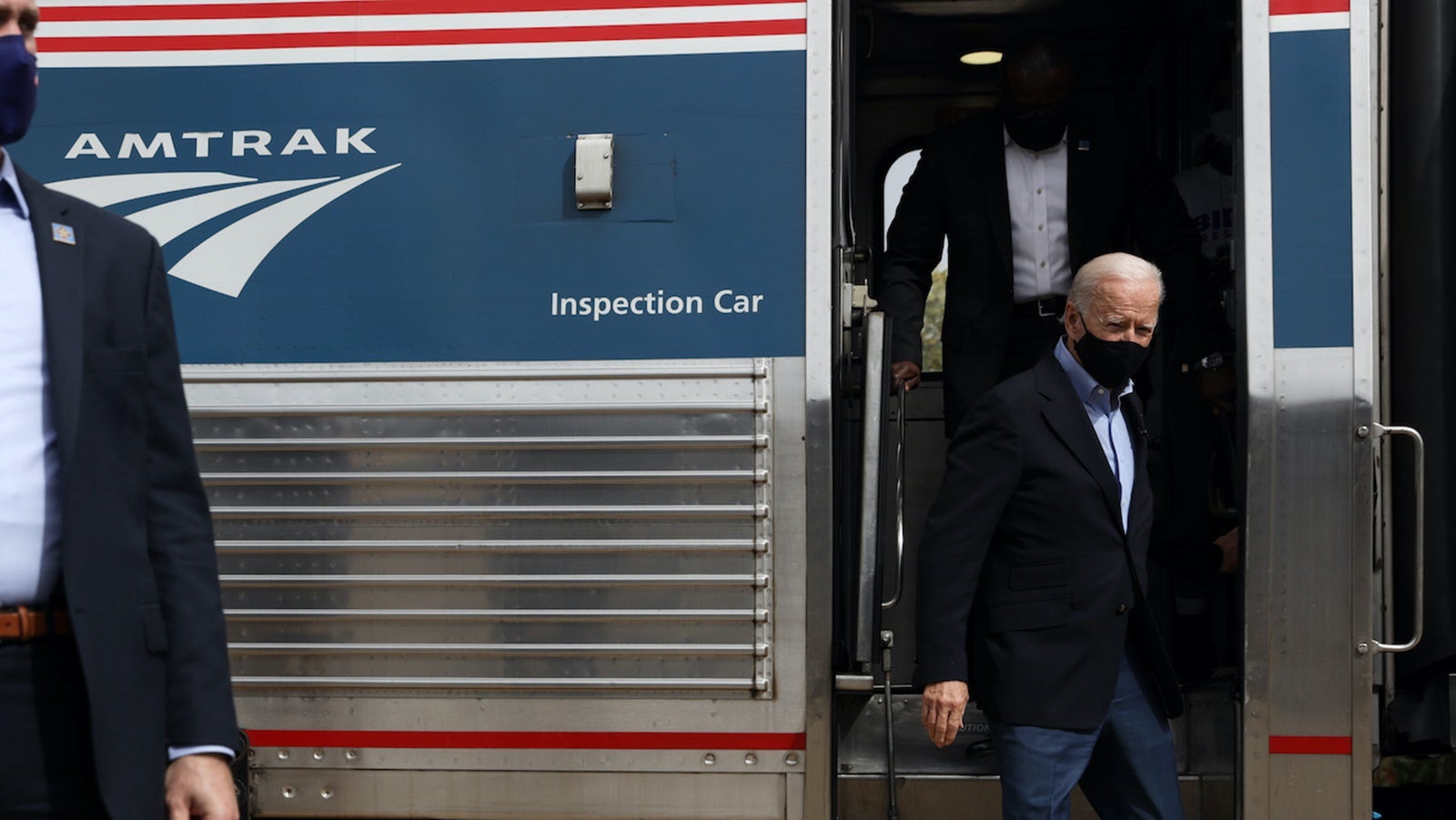
On the campaign trail, Biden detailed his hopes to "spark the second great rail revolution." In fact, before the Jan. 6 insurrection on the U.S. Capitol, the President-elect planned to travel from his home in Wilmington, Delaware, to Washington, D.C. with Amtrak. Security concerns later derailed those plans, resulting in a private jet journey for the President-elect on Tuesday night.
Biden's love for commuting via Amtrak and passenger rail is no secret. While the incoming administration hasn't revealed any concrete plans for a national rail investment, it's likely we could see that in the coming months.
Related: Amtrak showing off new high-speed trains
Where is rail investment most needed? According to the President and CEO of the U.S. High Speed Rail Association Andy Kunz, there are five top-priority projects the administration could look at. They include rail projects in California, Texas, Florida and the Pacific Northwest, as well as upgrades to Amtrak's Northeast Corridor. Additionally, the organization has said it would like the Biden administration to create a new High-Speed Rail Development Authority within the Department of Transportation (DOT).
Rick Harnish, executive director for the High Speed Rail Alliance told the Wall Street Journal, "There's a couple projects that, if you really pushed them, they could really demonstrate what high-speed rail could do."
In his campaign messaging, Biden said that he "will make sure that America has the cleanest, safest, and fastest rail system in the world — for both passengers and freight." To do that, then-candidate Biden said he would "tap existing federal grant and loan programs" at the DOT as well as working with Amtrak and private freight companies to further electrify the country's rail system.
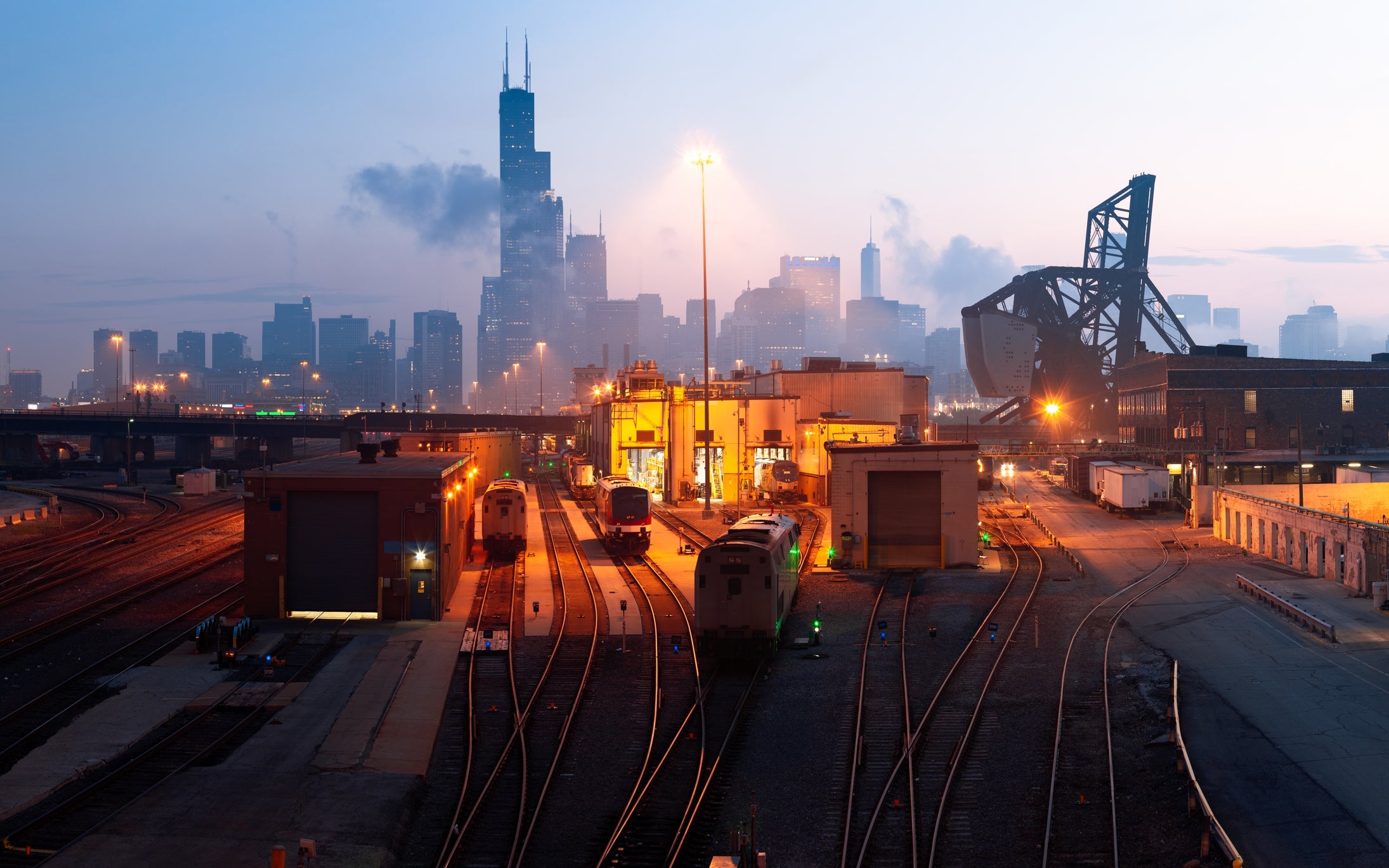
What about airport Investments?
In his campaign messaging, Biden said that U.S. airports are "in desperate need of improvement." Then-candidate Biden said he planned to commit $400 billion to airports through the Federal Aviation Administration's Airport Improvement Program and in order to achieve net-zero emissions by 2050. Additionally, he said that he would launch a new grant program for major airport renovation projects
At this point, exact detail about those airport improvement plans remain unknown. Additionally, there's no timeline for when Biden plans to unveil these investments.
As the Wall Street Journal points out, it's a good sign that nine of the 19 members of the Biden transportation transition advisory panel have experience in mass transit and two with airport experience.
"America's airports look forward to working with you and your administration on a range of aviation issues important to the American economy, such as implementing new health and safety measures in response to the COVID-19 global pandemic and making long-overdue investments in our nation's airport infrastructure," said Airports Council International - North America in a letter.
Can we expect to see travel bubbles?
On the mind of many Americans is traveling — especially internationally. Since the start of the pandemic, Americans have largely been banned from traveling to many parts of the world. The Biden administration has made clear thus far that it intends to keep the country's borders closed off — at least for the time being. It will keep the ban in place on non-citizens coming from Europe, Brazil, Iran and China.
Related: What is a travel bubble?
So, at this time, we shouldn't expect to see any travel bubbles announced. However, as the Biden administration emphasizes the vaccination roll out to more of the population, there is the possibility of travel opening back up. As such, we might expect to see travel bubbles open later this year.
There has long been reporting that the Trump administration was pushing for an "air bridge" between London and New York. However, it never came to fruition. Once both the U.K. and U.S. get more of their populations vaccinated, we could see that possibility open back up.
What can we expect Biden to do about the cruise industry?
Cruising is estimated to be a $150 billion global business, according to Travel Pulse, and the U.S. is its biggest market. But currently, all cruises are suspended under a "no sail order" until March 1 and no ships are allowed into U.S. waters. This date falls barely six weeks after Joe Biden's inauguration. So the question is: Will he extend it?
If not, all cruise lines must pass the Centers for Disease Control's "conditional sail order" that includes testing crew members, simulated test sailings and several mountains of paperwork.
However, Biden is said to be more conservative than Trump when it comes to reopening the cruise industry as he is led more by science -- so the CDC may have more influence and it is known to err on the side of caution.
"I'll simply follow the science," Biden said in September. "I'll level with the American people. I'll take responsibility, and I'll support rather than tear down the experts responsible for the day-to-day execution of the plan."
It will also be down to Biden and his administration to decide if all cruise passengers will need to be vaccinated before embarkation. But, there is also a question around the legality of such a mandate. Analysts recently told Business Insider that "a new administration would likely be less sympathetic toward cruise lines reopening without a vaccine and more keen to follow doctor, scientist, and expert recommendation."
In any case, major cruise lines such as Norwegian and Royal Caribbean have canceled all sailing until well into the spring.
TPG's expert on everything cruising Gene Sloan said to watch Cuba policy saying:
"There's some hope in the cruise world that the Biden administration will ease restrictions on travel to Cuba in a way that would allow cruise lines to resume trips there for Americans. If so, that would be a huge development for cruising. There's a need for new cruise destinations in the Caribbean, and Cuba is the Holy Grail when it comes to new Caribbean cruise destinations. There is a lot of pent-up demand for cruises to Cuba from Florida, and such trips would sell well."
Additional reporting by Hayley Coyle and Emily McNutt.
TPG featured card
at Capital One's secure site
Terms & restrictions apply. See rates & fees.
| 5X miles | Earn 5X miles on hotels, vacation rentals and rental cars booked through Capital One Travel |
| 2X miles | Earn unlimited 2X miles on every purchase, every day |
Pros
- Stellar welcome offer of 75,000 miles after spending $4,000 on purchases in the first three months from account opening. Plus, a $250 Capital One Travel credit to use in your first cardholder year upon account opening.
- You'll earn 2 miles per dollar on every purchase, which means you won't have to worry about memorizing bonus categories
- Rewards are versatile and can be redeemed for a statement credit or transferred to Capital One’s transfer partners
Cons
- Highest bonus-earning categories only on travel booked via Capital One Travel
- LIMITED-TIME OFFER: Enjoy $250 to use on Capital One Travel in your first cardholder year, plus earn 75,000 bonus miles once you spend $4,000 on purchases within the first 3 months from account opening - that’s equal to $1,000 in travel
- Earn unlimited 2X miles on every purchase, every day
- Earn 5X miles on hotels, vacation rentals and rental cars booked through Capital One Travel
- Miles won't expire for the life of the account and there's no limit to how many you can earn
- Receive up to a $120 credit for Global Entry or TSA PreCheck®
- Use your miles to get reimbursed for any travel purchase—or redeem by booking a trip through Capital One Travel
- Enjoy a $50 experience credit and other premium benefits with every hotel and vacation rental booked from the Lifestyle Collection
- Transfer your miles to your choice of 15+ travel loyalty programs
- Top rated mobile app

